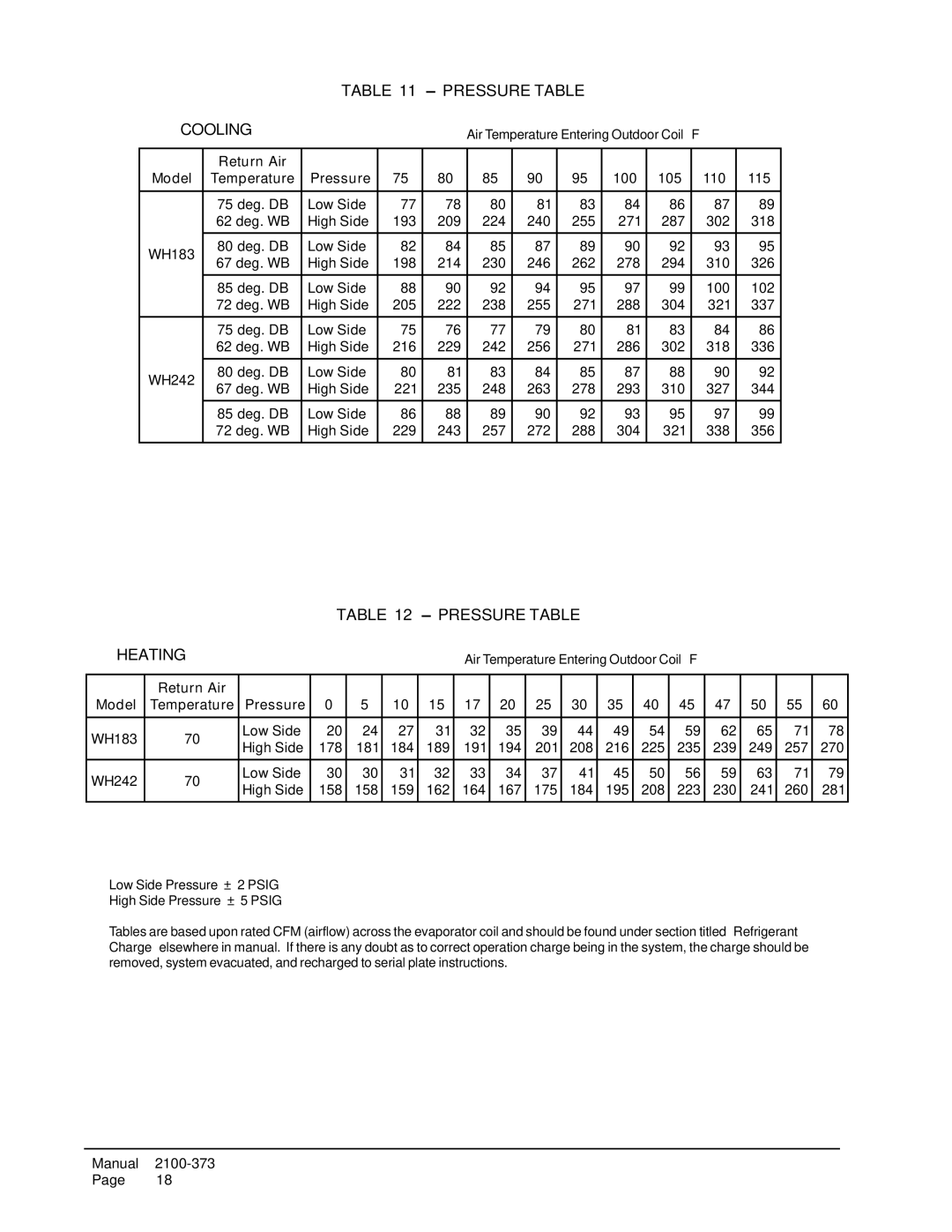WH183, WH242 specifications
The Bard WH242 and WH183 are innovative heating and cooling systems designed to meet the demands of various residential and commercial applications. These units are recognized for their efficiency, reliability, and advanced technologies, making them popular choices among property owners and HVAC professionals.The Bard WH242 is a high-capacity unit that delivers optimal temperature control, making it ideal for larger spaces. It boasts a robust design and a powerful compressor, which work together to provide consistent heating and cooling throughout the year. The unit features a multi-speed blower, helping to distribute air evenly while also enhancing comfort levels. Energy efficiency is a key highlight, as the WH242 complies with Energy Star standards, which means it consumes less energy while offering high performance.
On the other hand, the Bard WH183 is designed for smaller spaces without compromising on comfort or efficiency. It incorporates a compact design, making it easier to install in tight spaces. Despite its size, the WH183 is equipped with advanced technologies that ensure reliable operation. Like the WH242, this unit also features a multi-speed blower, which aids in maintaining a steady and comfortable indoor climate.
Both models utilize high-quality insulation and advanced refrigerant management systems that minimize energy loss. The systems are also equipped with advanced diagnostics, allowing for easier maintenance and troubleshooting. This means that HVAC technicians can quickly identify potential issues, ensuring that the units remain operational with minimal downtime.
Overall, the Bard WH242 and WH183 represent cutting-edge solutions for temperature management. Their design emphasizes durability, efficiency, and user-friendliness, appealing to a wide range of customers. With their combination of power, compactness, and advanced features, these units are well-suited for diverse applications, including schools, offices, and residential homes. Whether for heating in the winter or cooling in the summer, Bard's commitment to quality and innovation is evident in both the WH242 and WH183 models, making them a smart choice for efficient climate control.
